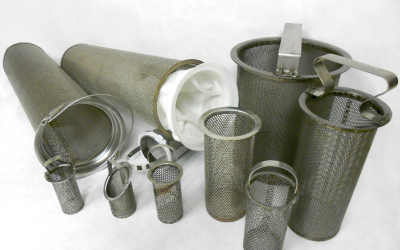In today’s fast-paced manufacturing landscape, efficiency, versatility, and cost-effectiveness are paramount. As industries across the United States seek materials and processes that offer these advantages, one method consistently stands out. For those searching for innovative solutions online, Aluminum Sheet Metal Fabrication is a primary search term, reflecting its growing popularity among engineers, designers, and project managers.
The Advantages of Aluminum in Manufacturing
Aluminum is renowned for its unique combination of properties, making it a top pick for a broad range of manufacturing applications. Its lightweight nature is especially valuable in sectors such as automotive, aerospace, and electronics, where reducing overall weight can lead to better performance and lower energy consumption. This reduction not only improves efficiency but can also contribute to lower shipping costs and easier handling during the manufacturing process.
Additionally, aluminum offers excellent corrosion resistance, which extends the lifespan of finished products. Unlike other metals that may require extensive coatings or frequent maintenance, aluminum naturally forms a protective oxide layer, making it ideal for products exposed to harsh environments or outdoor conditions.
Flexibility and Precision in Fabrication
One of the key reasons manufacturers turn to aluminum sheet metal is its exceptional formability. Aluminum can be easily cut, bent, stamped, and welded, allowing for the creation of intricate designs and complex components without sacrificing structural integrity. This flexibility streamlines the prototyping phase and supports rapid production cycles, which is critical for industries with tight deadlines or frequent design updates.
Modern fabrication techniques, such as CNC machining and laser cutting, further enhance the precision achievable with aluminum sheet metal. These technologies ensure that even the most detailed specifications can be met, resulting in components that fit perfectly within larger assemblies.
Cost-Effectiveness and Sustainability
Cost considerations play a significant role in material selection for manufacturing projects. Aluminum is not only abundant but also highly recyclable, making it a cost-effective choice for manufacturers. Recycling aluminum requires significantly less energy than producing new material, which translates into savings that can be passed along the supply chain.
Sustainability is another major benefit. As environmental regulations tighten and consumers become more eco-conscious, manufacturers are increasingly seeking materials with a lower environmental impact. Aluminum’s recyclability supports circular economy initiatives and reduces the carbon footprint of manufacturing operations.
Applications Across Diverse Industries
The versatility of aluminum sheet metal fabrication allows it to be used in a wide array of industries, including:
- Automotive: Lightweight panels, brackets, and structural components improve fuel efficiency and safety.
- Aerospace: Precision parts benefit from aluminum’s strength-to-weight ratio.
- Construction: Durable cladding, roofing, and custom architectural elements leverage corrosion resistance.
- Electronics: Heat sinks and enclosures protect sensitive components while dissipating heat.
This adaptability makes aluminum sheet metal a go-to material for projects ranging from mass production runs to custom prototypes.
Making the Right Choice for US Manufacturing
With its blend of lightweight strength, corrosion resistance, precision, and sustainability, aluminum sheet metal fabrication continues to be the preferred choice for US manufacturing projects. Its ability to deliver cost savings while meeting demanding performance standards ensures that manufacturers remain competitive in a global market. As industries evolve, the advantages of aluminum fabrication only become more apparent, solidifying its status as a cornerstone of modern manufacturing.


